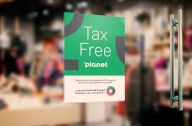أسئلة وأجوبة
Should we charge VAT for goods sold from Dubai Silicon Oasis to Umm Al Quwain?
Hello,
Kindly advise: We are selling goods and have a trade license from Dubai Silicon Oasis Free Zone, selling to a company in Umm Al Quwain.
Should we add VAT to the invoice?
Dear Questioner,
According to UAE VAT law, if you are selling to a company within the UAE, you are generally required to add VAT (5%) to the invoice, even if the company is in a different emirate such as Umm Al Quwain.
However, there may be specific exceptions related to free zone transactions (like Dubai Silicon Oasis).
We specialize in providing tax consultations and legal guidance related to business transactions in the UAE, and we can help clarify further details regarding VAT in this situation.
Feel free to contact us via WhatsApp for precise legal advice.

Dear Client,
Thanks for your question! I hope you are doing well. I will assist you in this matter.
Yes, you should add VAT to the invoice when selling goods from Dubai Silicon Oasis to a company in Umm Al Quwain.
The standard VAT rate in the UAE is 5%. Ensure you are registered for VAT if your taxable turnover exceeds AED 375,000 annually.
For any further discussion, you can WhatsApp us. We have an extensive team of knowledgeable and experienced lawyers to provide the legal assistance you need.
We will be happy to help you.
Thanks & Regards,
ABDUL WAHIED
Hello,
If your business has a turnover of AED 375,000 or more in a 12-month period, you are legally required to register for VAT with the Federal Tax Authority (FTA).
If your turnover is below this threshold, VAT registration is optional but still possible. In either case, once VAT-registered, you are legally obligated to comply with the VAT laws, including issuing VAT-compliant invoices.
Good morning!
When selling goods from a Dubai Silicon Oasis (DSO) Free Zone to a company in Umm Al Quwain, you should consider the following regarding VAT:
1. VAT Applicability:
Since both DSO and Umm Al Quwain are within the UAE, VAT (5%) applies to the sale of goods unless the buyer is VAT-registered and can provide you with their VAT registration number for a reverse charge mechanism.
2. Invoice Details:
If the transaction is taxable, you must charge VAT on the invoice. Ensure the VAT is clearly stated, along with your VAT registration number, if applicable.
3. Exemptions:
If the goods sold are exempt or zero-rated for VAT (e.g., specific categories like food, healthcare, etc.), no VAT needs to be added to the invoice.
We recommend consulting a tax advisor to ensure compliance with VAT regulations and proper invoicing.






